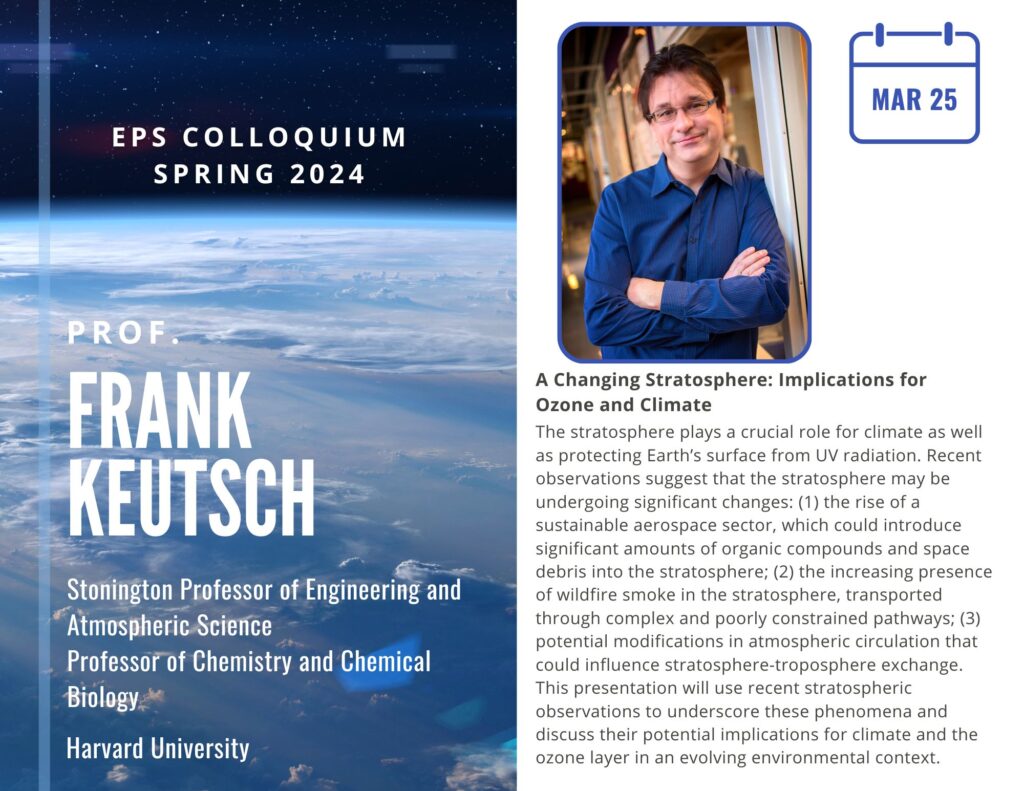EPS Colloquium – Frank Keutsch, Harvard University
A Changing Stratosphere: Implications for Ozone and Climate
The stratosphere plays a crucial role for climate as well as protecting Earth’s surface from UV radiation. Recent observations suggest that the fairly well understood state of the stratosphere of the last decades may be undergoing significant changes, that in part can be attributed to three emerging factors: (1) the rise of a sustainable aerospace sector, which could introduce significant amounts of organic compounds along with space debris into the stratosphere; (2) the increasing presence of wildfire smoke in the stratosphere, transported through complex and poorly constrained pathways; (3) potential modifications in atmospheric circulation that could influence stratosphere-troposphere exchange, resulting in additional perturbations. The impacts of these events – likely to become more frequent in the future – are poorly understood and pose challenges to accurate simulations. This presentation will use recent stratospheric observations to underscore these phenomena and discuss their potential implications for climate and the ozone layer in an evolving environmental context.
To be added to the EPS colloquium mailing list, please contact Caroline Carr at carolinecarr@fas.harvard.edu.

Frank Keutsch is an atmospheric chemist whose research spans laboratory experiments, field campaigns, and global modeling. His group’s research has focused on understanding anthropogenic influence on atmospheric composition, both gas-phase oxidative chemistry and molecular level studies of organic aerosol formation, fate, and properties. His research group has participated in numerous atmospheric chemistry field campaigns on land (in the US, Europe and the Amazon), in the air (stratosphere on board NASA’s ER-2 and WB-57F aircraft and troposphere), and on the oceans, aboard the South Korean icebreaker Araon. Keutsch is deputy-PI on the NASA Earth Venture Suborbital-3 Dynamics and Chemistry of the Summer Stratosphere (DCOTSS) campaign and his group is focusing on aerosol properties and fate in the Upper Troposphere/Lower Stratosphere. He has contributed to national and international assessments of stratospheric chemistry and geoengineering, including the 2022 WMO Quadrennial Ozone Assessment and the 2019 National Academies Committee on climate intervention research and governance. He has also had an advisory role regarding atmospheric chemistry measurements and modeling at the National Center for Atmospheric Research.

